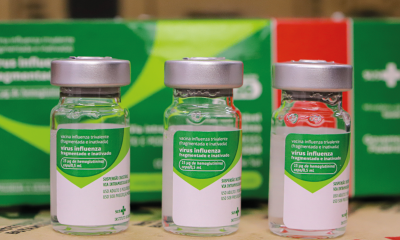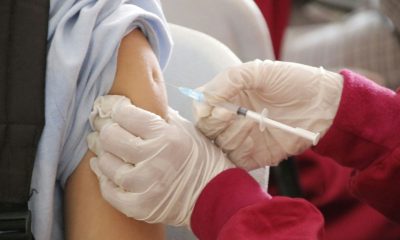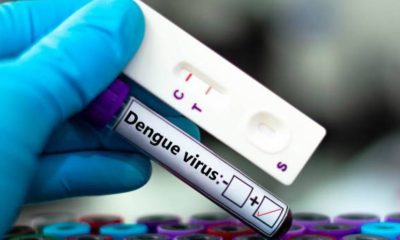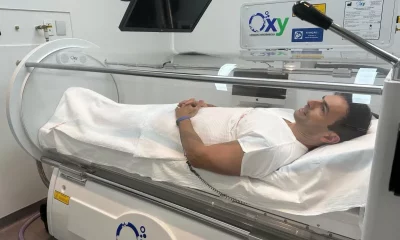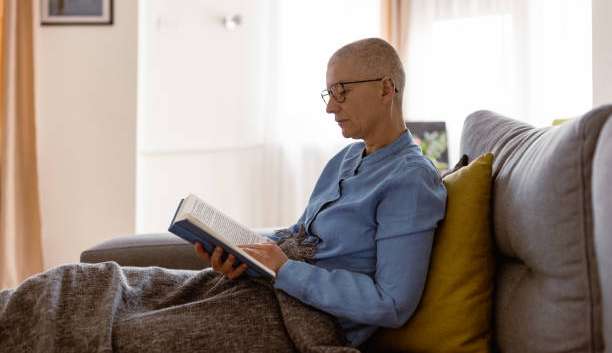
Leukemia: Understand the cancer that affects blood cells
Follow Us @
Leukemia – Of the types of cancer that affect the blood, leukemia is the best known. The age of onset varies according to the subtype of leukemia, which, in general terms, is divided into myeloid and lymphoid, according to the affected cell. In both categories, it can be qualified as being acute or chronic, considering the speed of division of these cells and, therefore, the agility with which the disease develops.
Leukemia
Acute Leukemias can occur in all age groups, with ALL (Acute Lymphoblastic Leukemia) having a higher incidence in childhood and youth. Acute Myeloid Leukemia (AML) is the most common type of Leukemia in adults, corresponding to 80% of cases in this group. The occurrence of AML increases with age (higher incidence above 65 years). According to the National Cancer Institute (INCA), there are an estimated 11,540 new cases each year in Brazil – being the 10th most common type of cancer among the Brazilian population
“Leukemia is triggered by genetic mutations in hematopoietic cells, responsible for the production of blood cells (red and white blood cells and platelets).
These mutations cause the hematopoietic cell to produce a large number of abnormal cells, which cannot mature and function normally, occupying the bone marrow and preventing normal cells from being produced”, explains Dr. Mariana Oliveira, oncohematologist at Oncoclínicas São Paulo.
According to the specialist, the disease is not a hereditary condition, but acquired genetic alterations that end up triggering the onset of cancer. “Unfortunately, there is no form of prevention. However, it is important to be attentive and seek a doctor whenever you have any of the symptoms. Thus, it will be possible to carry out diagnostic tests quickly and choose the most appropriate treatment for each case”, highlights the Dr. mariana
Be aware of the symptoms
Some factors, such as exposure to chemical products, mainly benzene derivatives, and radiation at high levels, as well as some genetic diseases such as Fanconi anemia and others that affect the blood, can increase the risk of incidence of the disease. Still, these are just factors that can contribute to the onset of leukemia, but they are not the rule. In view of this, the oncohematologist’s main advice is to pay attention to the signs that may indicate the disease.
“The symptoms of acute leukemia include paleness, tiredness and drowsiness, one of the consequences of the drop in the production of red blood cells (erythrocytes) and consequent anemia. Purple spots that apparently appear without trauma, small red dots on the skin and / or more intense bleeding and prolonged after minor injuries may also arise as a result of the decrease in platelet production”, comments the doctor.
The reduction in immunity caused by the low amount of white blood cells also causes the person to have constant infections and fever. “Bone and joint pain, which can hamper the ability to move around, and headaches and vomiting are other possible symptoms that should not be ignored. Another sign of the disease may still be weight loss,” he says.
The oncohematologist at Oncoclínicas São Paulo emphasizes, however, that chronic leukemias are commonly discovered by alterations identified in the blood count – a blood test that must be performed periodically as part of the routine, since they hardly present obvious alterations to health. “Only in more advanced stages can symptoms similar to acute cases occur,” she points out.
To close the diagnosis, it is recommended to collect bone marrow for specific tests (myelogram, biopsy, immunophenotyping and karyotype). Other complementary studies can then be suggested, according to the subclassification to be established and risk analysis, so that the treatment to be adopted can be defined.
How does treatment for leukemia work?
Right away, when talking about leukemia, it is almost inevitable to think about bone marrow transplantation. But, it is much broader than the cases that really need this procedure. In many patients, the treatment can be drug throughout life, or even from the chemotherapy itself, capable of eliminating the disease.
“This will depend on each case. As there are many types of leukocytes, we also have different types of leukemia”, explains Mariana. They can be acute (acute lymphocytic leukemia and acute myeloid leukemia) or chronic (chronic lymphocytic leukemia and chronic myeloid leukemia), they are defined as follows:
-
- Acute Leukemias: they require hospitalization, classification exams and bone marrow tests to choose the appropriate chemotherapy for the patient. Generally, the mutated cells multiply rapidly and are more common in children.
-
- Chronic Leukemias: it has a slow development and can accompany the patient throughout life, without major complications. In most cases it is more common in adults and its treatment is carried out with routine consultations and prescription of medicines.
“We have to remember that advances in treatments have taken a very important leap. One of them is car-t cell therapy, in which T-type lymphocytes are treated in the laboratory so that they can analyze and recognize cancer cells, eliminating them”, comment.
In addition, leukemia has a high chance of being cured, reaching up to 90% in the case of children and 50% in people aged up to 60 years. “Although there is no cure for some cases of the disease, the treatments are effective in offering a greater expectation and quality of life. Therefore, early diagnosis is fundamental for the control of leukemia”, concludes Dr. Mariana Oliveira.
Featured Photo: Playback
Follow AFRILATEST on Google News and receive alerts for the main news about celebrities, soap operas, series, entertainment and more!
SHARE POST AND EARN REWARDS:
Join our Audience reward campaign and make money reading articles, shares, likes and comment >> Join reward Program
FIRST TIME REACTIONS:
Be the first to leave us a comment, down the comment section. click allow to follow this topic and get firsthand daily updates.
JOIN US ON OUR SOCIAL MEDIA: << FACEBOOK >> | << WHATSAPP >> | << TELEGRAM >> | << TWITTER >
Leukemia
-
News2 months ago
Harry decides to appeal after loss of police protection in the UK
-
Good News TV series2 months ago
Preta Gil is the new presenter of TVZ on Multishow
-
Good News TV series2 months ago
Justin Bieber and Hailey go to church using a powerful car
-
Good News TV series2 months ago
Fuzuê: Pascoal is sentenced to more than 70 years in prison
-
Health and Fitness2 months ago
Hyperbaric Oxygenation accelerates recovery from knee injuries, according to USP study
-
News2 months ago
Viradouro wins the Rio de Janeiro Carnival title in 2024 now news
-
Culture2 months ago
the Sub4 Turismo package that we recommend and we go (on the 42 km)
-
Health and Fitness2 months ago
See tips for getting pregnant after age 40













